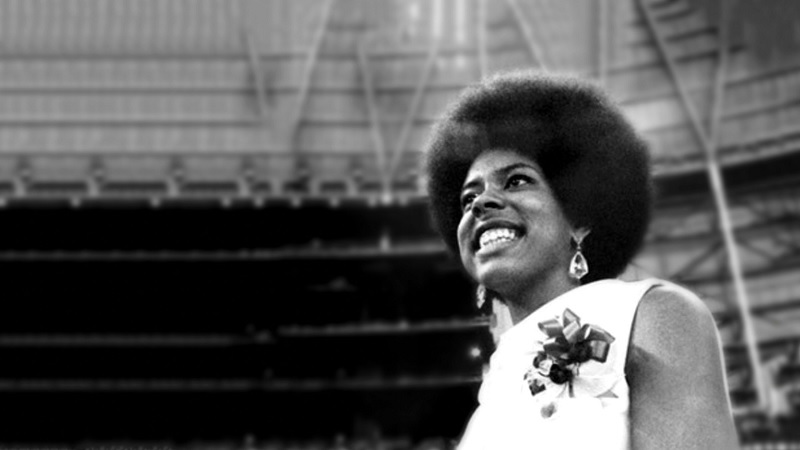More than half a century ago this month, then 20-year-old Lynn Eusan became the first African American homecoming queen in the University of Houston's history, crowned at the Astrodome on Nov. 22, 1968.
The university and its student newspaper, the Daily Cougar, marked the 50th anniversary in 2018 with a page on UH's website and a detailed feature story.
Eusan's crowning often is overshadowed by other accomplishments and events in her brief. One of the first African American students at UH, Eusan co-founded the university's African American Studies program and the third ward's SHAPE Community Center. She also was a journalist, activist, advocate, organizer, fundraiser and marching band member. She also was a sorority girl as charter member of Alpha Kappa Alpha, one of the university’s first black sororities that remains active today.
She was arrested twice for demonstrating, something of a badge of honor at the time.
The largest park on campus is named for her.
She was killed in September 1971, a month shy of her 24th birthday, and that murder remains officially unsolved.
And yet her becoming homecoming queen at the then still predominantly white university – the first at any predominately white university in the south – remains a watershed.
It started with an idea among "students who no longer wanted to be second or third string and wanted their own cultural identity recognized and respected," another early African American UH student and Eusan's dear friend, Gene Locke, said on the webpage. Locke would go on to a law career that includes terms as Houston City Attorney and Harris County Commissioner.
In 1968, he was one of a group of Eusan's supporters who were determined to be queen makers.
"We thought of it at the time as 'How crazy it would be that a black girl could be homecoming queen at the University of Houston?'" Locke recalled.
Eusan agreed to the idea because, as one of the first civil rights advocates on campus, being homecoming queen would provide her with yet another platform to get the word out.
She scored the endorsement of the Daily Cougar, which said, "Lynn’s election to this honored position will be a symbol representing UH's defiance of the wall of prejudice, and an indication that educated Americans are moving into a new era of enlightenment."
What Eusan didn't get was a nod from the university's white Greek organizations, which responded to her candidacy with minstrel shows.
What support she had was solid.
"It was not just Lynn and I," Locke said. "There were a whole host of students – African-American, Hispanic, white, international students – people who thought: We are here for a certain purpose, it's time to make a change."
As election night approached, Eusan told the Houston Chronicle that her candidacy marked up a win that would last even if she was not elected.
"This was the first time black students on the campus have banded together and really been effective against overwhelming odds," Eusan said.
Eusan won, beating five white candidates.
"The shock that she was actually named, it was fantastic," Locke said.

